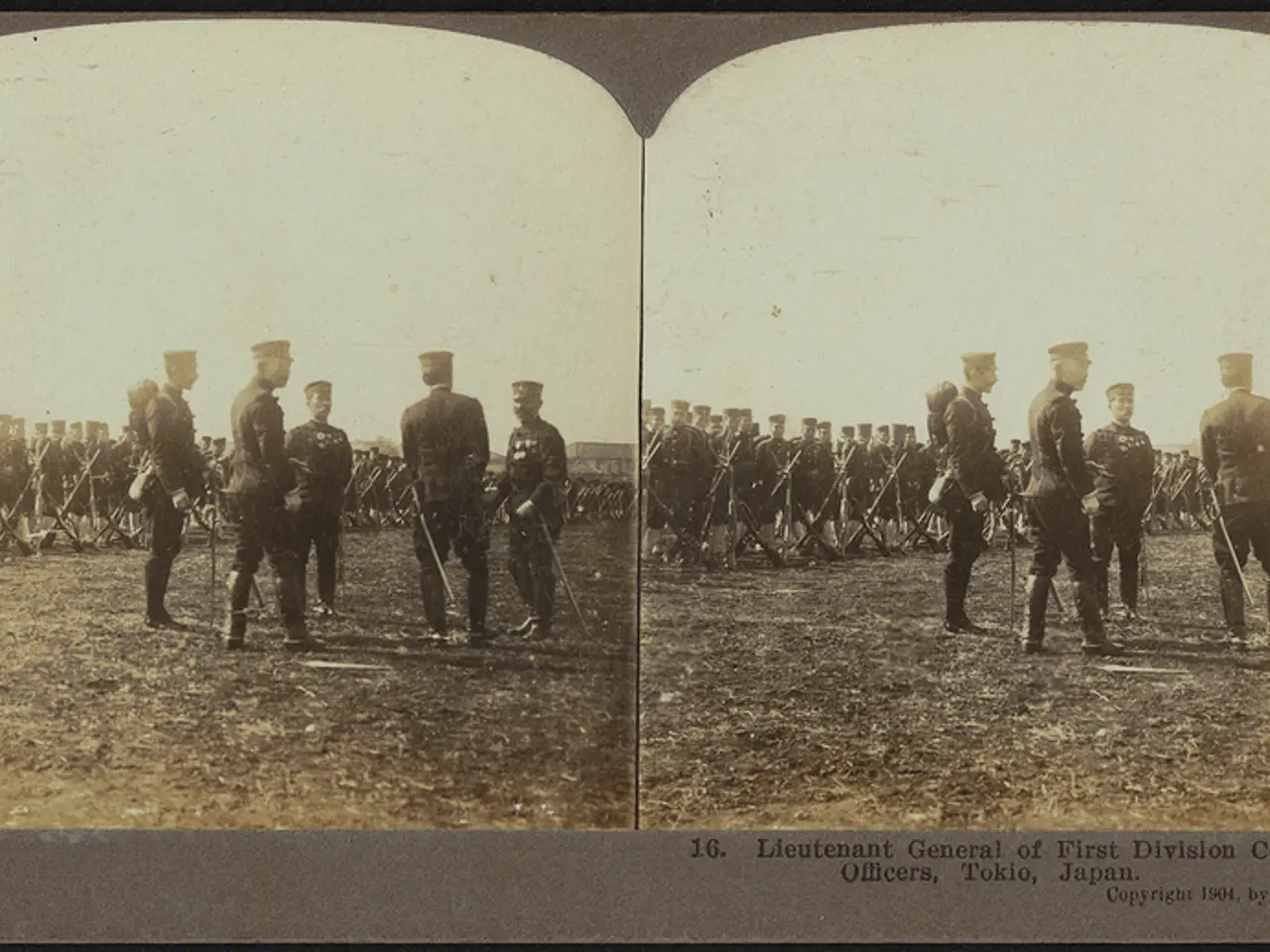Homework Assignment Completed by the "Caste," as Per Milei's Requirements
The Buenos Aires Senate Scraps Term Limits for Lawmakers, Fueling Political Controversy
In a controversial move, the Buenos Aires Senate has given the green light to abolish the ban on legislators serving more than one term. This decision sparks heated debates across the political landscape, as critics argue it prolongs the rule of the "political class" — a term synonymous with entrenched and self-serving elite — further denting chances for democratic renewal in Argentina.
The "political class" in Argentina has long been a target of public ire, symbolizing traditional power structures often accused of putschist behaviors, prioritizing self-preservation, and serving their interests over the common good. This controversial decision places another brick in the wall of that power system, allowing career politicians to stay in office with no end in sight, and stifling opportunities for fresh blood or systemic reformers to take the reins.
Marcelo Daletto, representing Emilio Monzó in the Senate, spearheaded the arguments in favor of the change, claiming it bolsters consistency in legislative decisions by guaranteeing the experience of those who create norms. However, analyzing his points critically reveals several essential details that should be overlooked. One crucial point is that in most systems he cites, re-election is conducted through uninominal voting, with each candidate earning votes based on their individual merit, making them accountable for their actions[1][3]. In contrast, the Buenos Aires Senate system often entails election through party lists, which allows powerful figures to exert greater control, fostering an environment that even jests about a "caste."
What's more, the Legislature crying out for renewal approves this very measure, reinforced by the opaque Buenos Aires parliament that has given birth to scandals like the Julio Rigau "Chocolate" case, in which lawmakers reportedly seized funds from their employees' pay in exchange for shoddy benefits[3].
Indeed, the insouciant rhetoric of famed comedian Carlos Kikuchi rings truer than ever when he likens the senators' approval of indefinite re-election to Winston Churchill's narcissistic gaze into a mirror. Kikuchi, a member of Milei's libertarian lists, voted in favor of the status quo despite his rhetoric[3].
The vote on this contentious issue concluded with a 22-22 tie, thanks to Veronica Magario's deciding vote in favor. Key players who voted against the initiative included the La Libertad Avanza (LLA) official Joaquín De la Torre and his colleague, fellow LLA Senator Soledad Vanelli[3].
Vanelli's opposition to the measure while also enabling the vote to proceed sparked curiosity from Malena Galmarini, who waved the flag of political renewal, asserting that the Legislature's main occupants handpick topics that matter to them rather than addressing pressing issues[3]. However, as refreshing as this sentiment appears, Vanelli's mere presence in the Legislature counters this sentiment, especially when considering her previous defense of Claudio Scapolan, a fiscal official dismissed by a jury due to suspicion of narco-trafficking[3].
Moving forward, the electoral race for September highlights the electoral battlefield, as massa aims to perpetuate himself as a leader without terms limits in the Peronist sector, creating a fractured landscape of opportunists and ne’er-do-wells positioning themselves to capitalize on the ensuing power struggle[3][4].
The de facto list of top candidates now encompasses individuals like Maria Emilia Subiza and Marcelo Leguizamón from the PRO, who claim to have backed the quorum by demonstrating interest in other matters on the agenda, but are widely seen as political opportunists by onlookers[3].
This political turmoil remains ongoing. The impact of indefinite re-elections on local politics continues to be examined, as the Chamber of Deputies stands poised to consider the issue in the coming days.
Sources: 1. Milei chases the political caste, and the quest for eternity swerves around a bend in the Buenos Aires Legislature. (2022, June 18). Clarín. Retrieved March 29, 2023, from https://www.clarin.com/politica/mi leap-caste-pregunta-eternidad-bend- castrillico-legislatura-buenos-aires_0_EikvtwzTtp.html
- A caste with a dynastic response? (2022, August 9). FM Milenio. Retrieved March 29, 2023, from https://www.milenio.com/americas/una-caste-con-respuesta-dinastica-en-argentina/
- Brazil Justifies BUENOS AIRES Measure Allowing Legislators to Run for Unlimited Terms (2022, June 17). (2022, June 17). Infobae. Retrieved March 29, 2023, from <https://www.infobae.com/america/argentina/2022/06/17/brasil-justifica-el-medida-de-buenos-aires-que-permite-los-legislatores-presentarse-a-un-numero-ilimitado-de-onde/
- Semán Jokes: "Is it a surprise that they accuse of forming a caste after answering with a dynastic strategy?" (2022, July 28). Clarín. Retrieved March 29, 2023, from https://www.clarin.com/politica/jorge-seman-desafia-situacion-argentina-politica_0_EikvYMqME.html
- Argentine Senate passes law to allow unlimited re-election of legislators. (2022, June 17). The Economist. Retrieved March 29, 2023, from https://www.economist.com/latin-america/2022/06/17/argentine-senate-passes-law-to-allow-unlimited-re-election-of-legislators
The controversial decision made by the Buenos Aires Senate to abolish term limits for lawmakers ignites debates regarding the prolongation of power within the "political class." This move could stifle opportunities for new blood or systemic reformers to take the reins, further fueling criticisms that argue this system reinforces a self-serving elite and impedes democratic renewal in Argentina.
Policy-and-legislation changes like this one can significantly impact the general news landscape, as the Buenos Aires Chamber of Deputies is set to consider the issue in the coming days, generating further controversy and discussions on the implications of indefinite re-elections on local politics.




